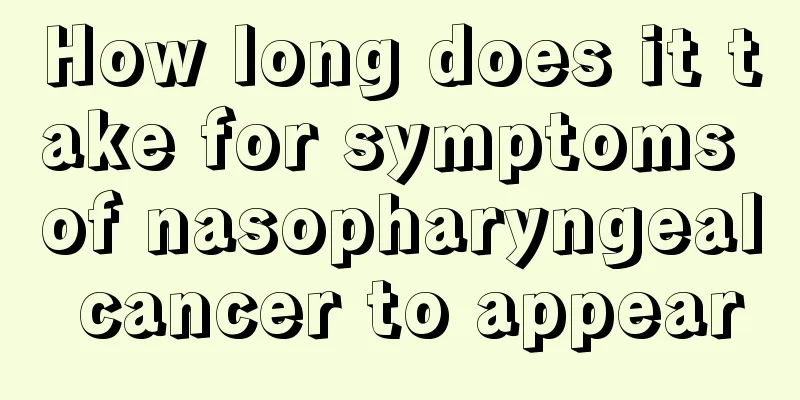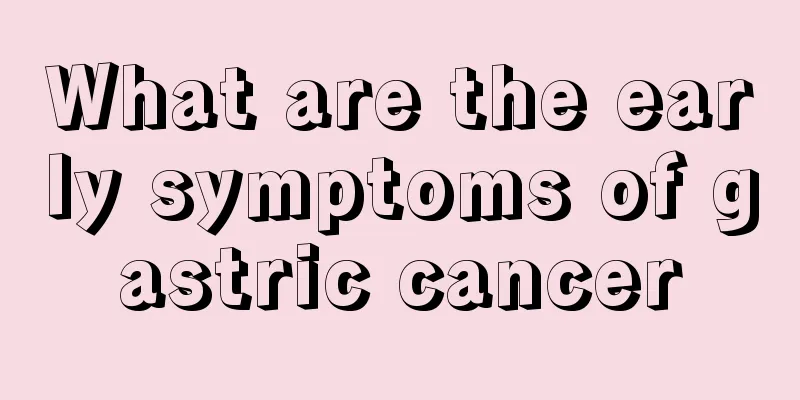How long does it take for symptoms of nasopharyngeal cancer to appear

|
Symptoms of nasopharyngeal carcinoma are usually not obvious in the early stage, but in the late stage, symptoms such as nasal congestion, nose bleeding, tinnitus, and hearing loss may appear. The occurrence of nasopharyngeal carcinoma is closely related to genetics, viruses such as Epstein-Barr virus, environmental factors such as smoking, inhalation of harmful gases, and eating habits such as pickled foods. Early detection and treatment are crucial to prognosis. The treatment methods for nasopharyngeal carcinoma mainly include radiotherapy, chemotherapy, and surgery. At the same time, combined with traditional Chinese medicine treatment and supportive therapy, there is also a positive effect. 1\. The early symptoms of nasopharyngeal carcinoma are relatively hidden. Patients may only feel mild nasal congestion or nasal discomfort. As the disease progresses, persistent nasal congestion and nose bleeding may occur, especially unilateral nasal congestion and respiration of bloody nose. Tinnitus and hearing loss are also common symptoms, mostly caused by tumor compression of the Eustachian tube. Enlarged lymph nodes in the neck are typical manifestations of nasopharyngeal carcinoma, which are usually painless and hard in texture. Late-stage patients may also experience symptoms such as headache, diplopia, and facial numbness. 2\. Genetic inheritance is an important risk factor for nasopharyngeal carcinoma. People with a family history of nasopharyngeal carcinoma have a higher incidence rate. Viral infection, especially Epstein-Barr virus infection, is closely related to the occurrence of nasopharyngeal carcinoma. Environmental factors such as long-term inhalation of harmful gases such as formaldehyde and secondhand smoke, and bad eating habits such as excessive consumption of pickled foods can also increase the risk of disease. Physiological factors such as low immune function and chronic nasopharyngeal inflammation may also induce nasopharyngeal carcinoma. 3\. After the diagnosis of NPC, radiotherapy is the first choice, especially intensity modulated radiotherapy (IMRT), which can accurately target the tumor and reduce damage to surrounding tissues. Chemotherapy is often used to assist radiotherapy or palliative treatment for advanced patients. Commonly used drugs include cisplatin, fluorouracil, etc. For patients with local recurrence or poor radiotherapy response, surgical treatment may be required, such as endoscopic sinus surgery or cervical lymph node dissection. Traditional Chinese medicine conditioning and nutritional support therapy can enhance the patient's physical fitness and reduce the side effects of treatment. The treatment effect of nasopharyngeal carcinoma is closely related to early detection. Regular physical examinations, especially screening of high-risk groups, are very important. Patients should maintain good living habits, avoid smoking and alcoholism, reduce the intake of pickled foods, and enhance immunity. Actively cooperating and maintaining a good attitude during treatment will help improve the quality of life and prognosis. |
<<: Rectal cancer inner thigh pain
>>: Is omental hernia an early symptom of colon cancer?
Recommend
Purple streaks on your inner thighs?
If adolescent children grow too fast or gain weig...
What are the reasons why children do not have teeth?
Teething is a process that children must go throu...
The most obvious difference between hemorrhoids and colon cancer
There are obvious differences between hemorrhoids...
How to correct overbite in adults
Overbite is a relatively serious dental deformity...
Which flowers absorb formaldehyde best
The harmfulness of formaldehyde is obvious to all...
What causes the late stage symptoms of lymphoma
Lymphoma is a serious disease with a very high in...
Traditional Chinese medicine treatment of irregular vaginal bleeding in patients with endometrial cancer
Patients with endometrial cancer may experience i...
Are smoking and drinking related to the occurrence of colorectal cancer?
As we all know, smokers are prone to lung cancer,...
What should I do if my skin is red, swollen or itchy due to skin allergies?
Redness, swelling and itching caused by skin alle...
The effect of boiler descaling agent
The boiler is naturally a kitchen utensil that we...
What is the reason for dry and bitter mouth when sleeping at night?
The appearance of bitter and dry mouth can make p...
How to soak cassia seeds and lotus leaves in water
After eating greasy food, a cup of lotus leaf and...
Diet care for esophageal cancer
Patients with esophageal cancer are generally wea...
Can lack of sleep also cause liver cancer? 8 bad habits are most likely to induce liver cancer
Liver cancer is one of the most common malignant ...
How to reheat leftovers in the oven?
The oven is a very common kitchen appliance in ou...









